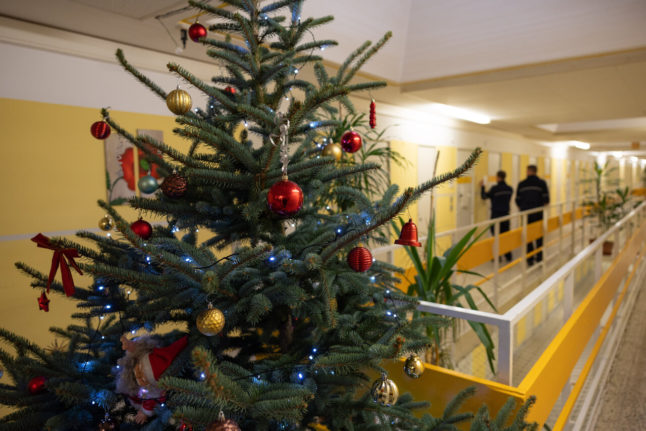Christmas is a time to spend with your family, and in most states of Germany that’s true even for convicted criminals.
That’s what the Weihnachtsamnestie, or Christmas amnesty, is about, and this year more than 670 prisoners will be released over the holidays, though this is fewer than last year.
The amnesty applies to prisoners who would be due to be released around the end of the year anyway so that they can enjoy the holidays at home.
The largest number of prisoners released is in the southern state of Baden-Württemburg, where around 200 people were allowed to leave their cells from November. Almost 100 each will be released in Hesse and Berlin, and 75 in Rhineland-Palatinate.
READ ALSO: What happens when a foreigner gets arrested in Germany?
Not all prisoners jump at the opportunity: in Lower Saxony, four prisoners refused the offer this year, wanting to ring in the bells behind bars.
There is one state that refuses to participate in this festive tradition, and it’s a strongly catholic one. You may have guessed it already: Bavaria.
The state is known for its tough approach to criminal justice and doesn’t release prisoners out early to enjoy the Weihnachtsmärkte (Christmas markets).
It should be noted that in cases of crimes of sexual violence there has to be a case review before prisoners are released.
READ ALSO: Where to get free immigration advice in Germany?
Why does Germany have a Christmas amnesty for criminals?
The move is is intended as a gesture to help prisoners reintegrate into society.
“Early release on the occasion of Christmas is intended to make reintegration into society easier,” said Baden-Württemberg’s justice minister Marion Gentges.
Meanwhile, Hesse’s justice minister Roman Poseck added that prisoners should be able to get support set up before the festive season is fully underway.
He said: “In addition, the prisoners should be given the opportunity to take advantage of offers of help, to visit advice centres and to deal with authorities before they are impossible or difficult to reach due to the holidays.”



 Please whitelist us to continue reading.
Please whitelist us to continue reading.
Member comments